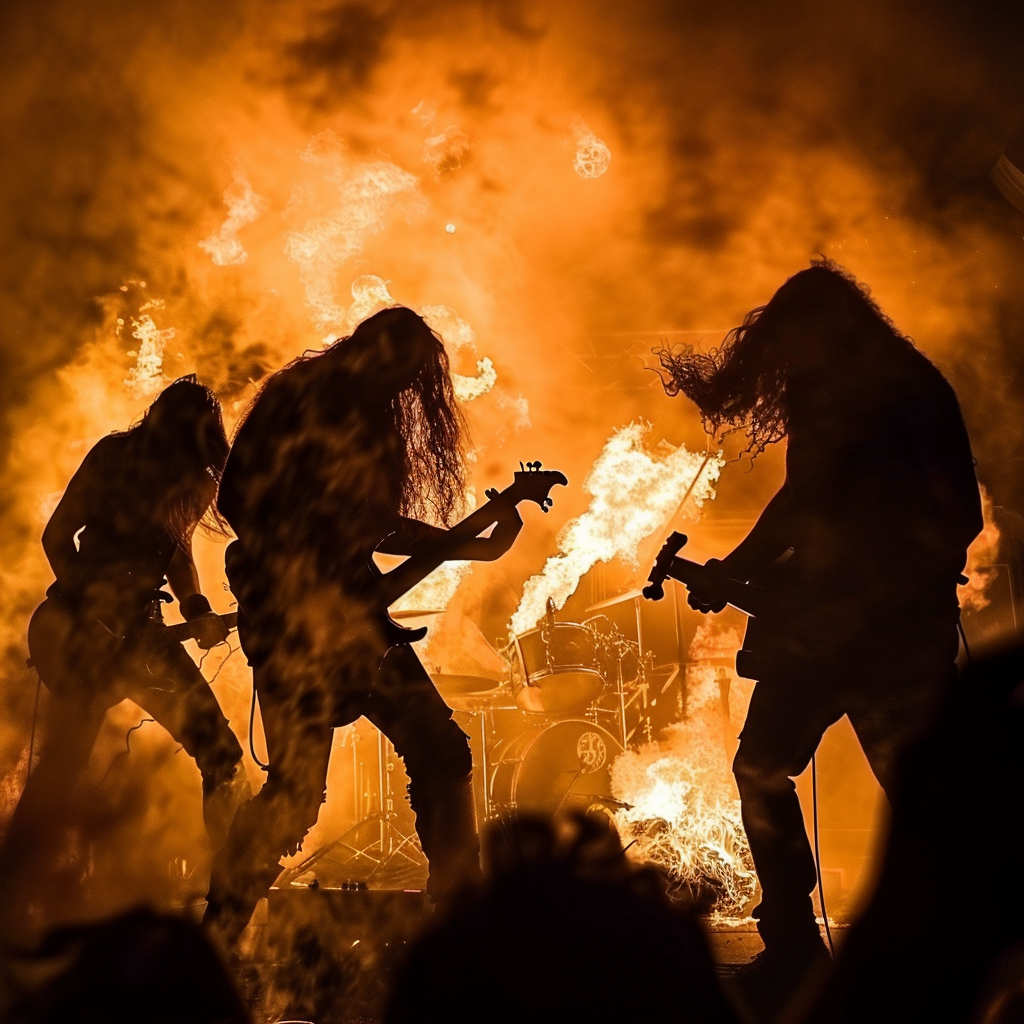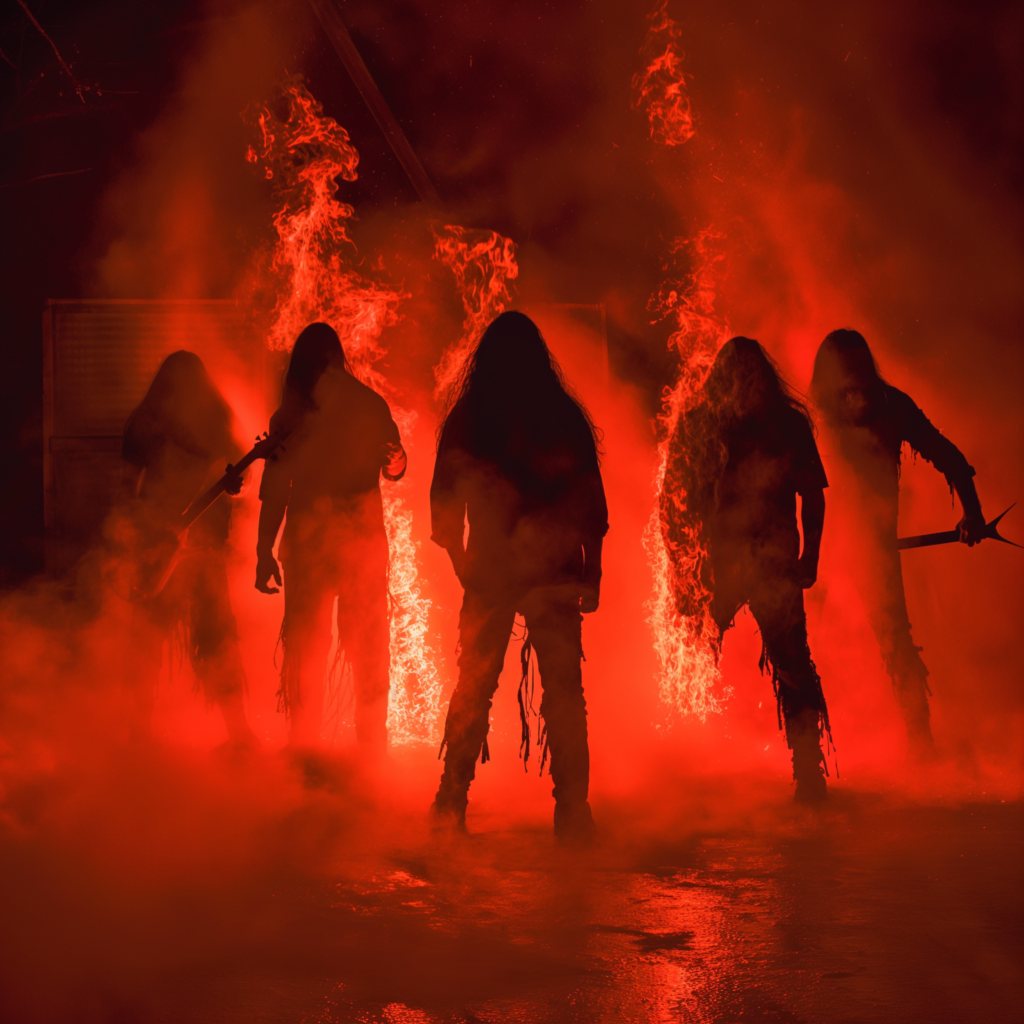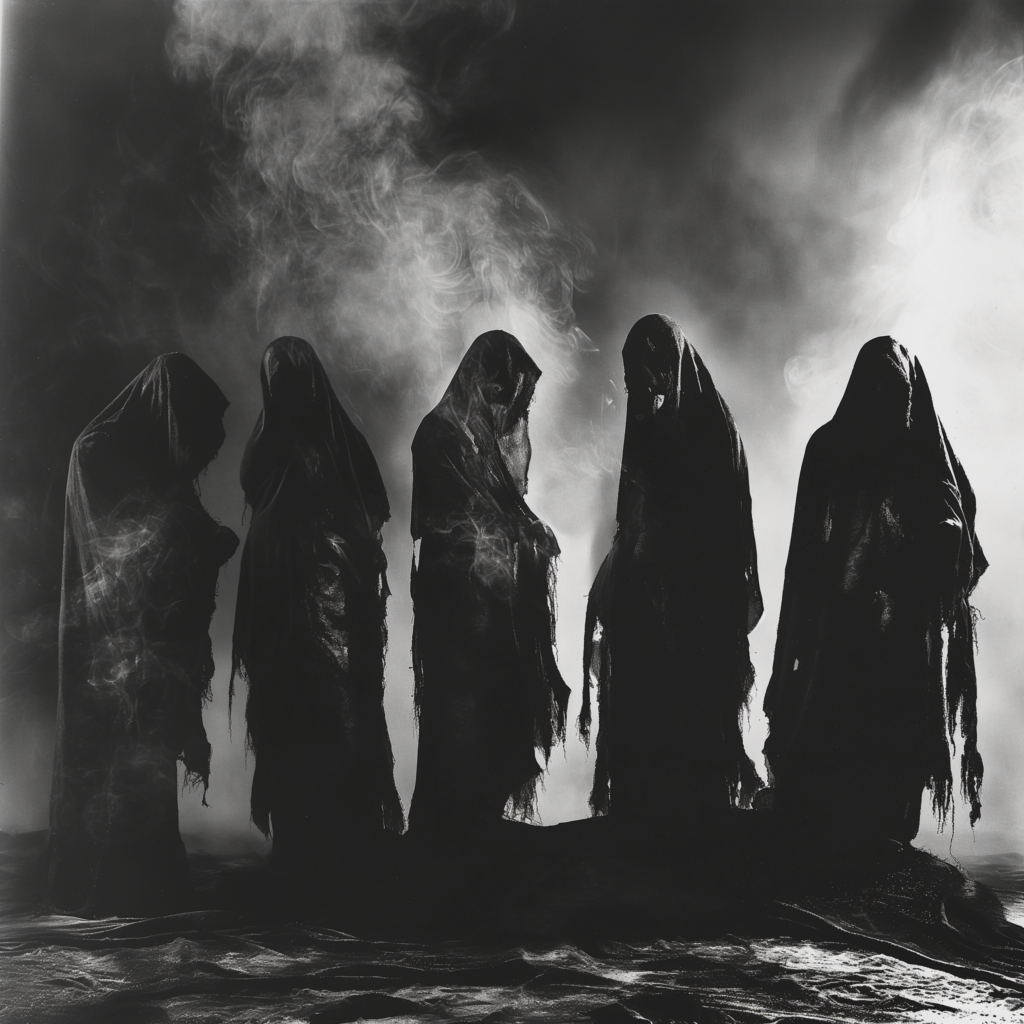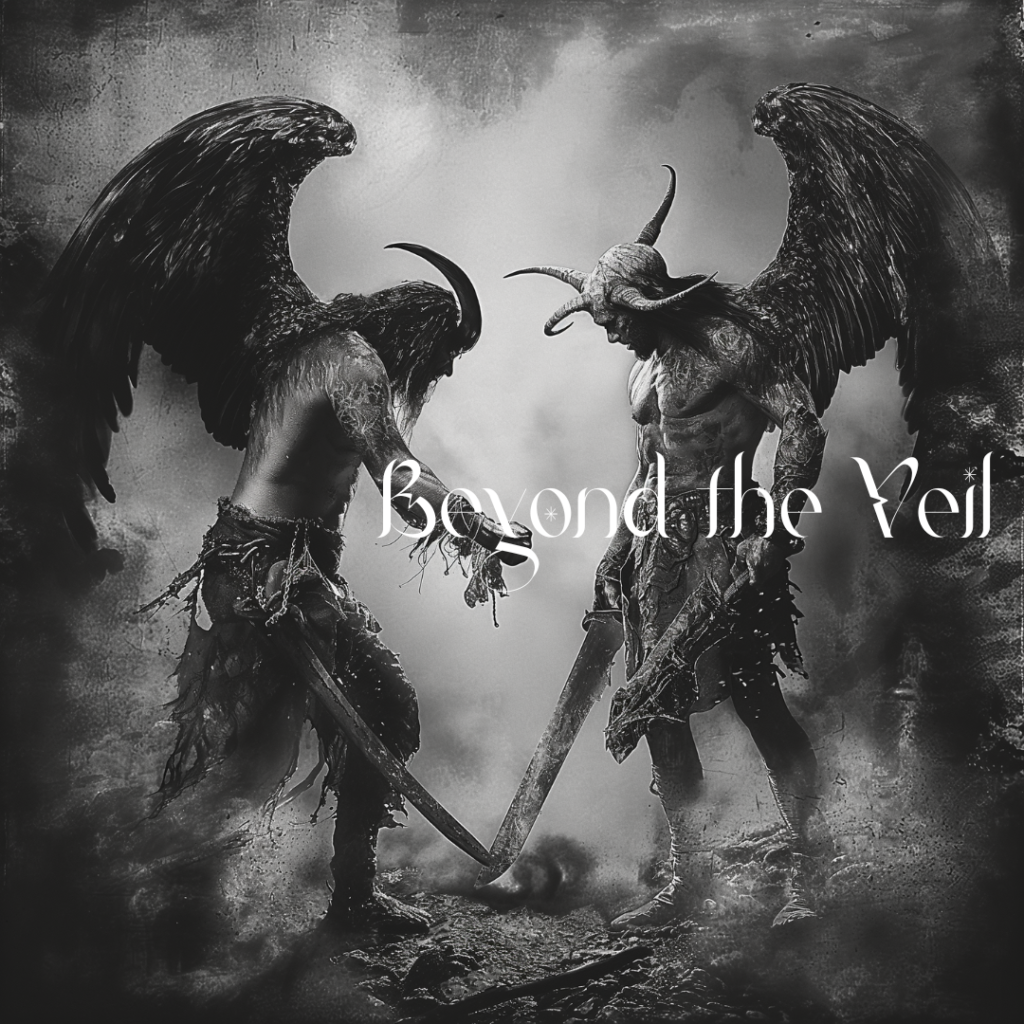<DB Karma> Pianos, Mellotron, Synth, Vocals
<Yoshihiro Yamaji> Lead Guitar, Chapman Stick
<Eric Fetterman> Rhythm Guitar, Lead Vocals
<Masato Date> Bass
<Keisuke Tsuboi> Drums

Beyond the Veil is a Tokyo-based progressive extreme metal band founded in 2020 by DB Karma, Yoshihiro Yamaji, and Eric Fetterman. Less than a year later, Masato Date and Keisuke Tsuboi joined on bass and drums in 2021.
In the early days of the band, the songs were a blend of various extreme metal genres such as thrash, death metal, black metal, and blackgaze, but the sound gradually expanded, adding more and more eclectic elements borrowed from progressive metal/rock, jazz, folk, classical music, and more.
The band’s songs—composed by the two primary songwriters, lead guitarist Yoshihiro and keyboardist DB Karma—are chock-full of memorable, melancholic melodies and sudden shifts between crushing intensity and placid calm. The overall epic and grandiose nature of their songs is the result of the myriad influences of the band’s members, running the gamut from melodic death metal and punk to progressive rock and pop.
Rhythm guitarist and lead vocalist Eric is also an active contributor to the band’s songwriting and the main lyricist, handling the English lyrics, while the band’s other vocalist DB Karma handles the Japanese lyrics. Masato and Keisuke also collaborate on their bass and drum arrangements.
DB Karma: “In these modern times, there’s basically no such thing as ‘original music’ that hasn’t been heavily influenced by others. I suppose what we call ‘musical originality’ comes from listening to all sorts of music, digesting them, and then combining them organically. Listening to only a single genre of music can never produce anything truly new, can it? Though those who operate solely in a single genre of music and manage to produce something new are what we’d describe as geniuses. I’m a big fan of classical music (especially Mozart! The man was a genius!), as well as 70s to 90s prog rock and metal (especially EL&P, King Crimson, Pink Floyd, Rick Wakeman, Anekdoten, Museo Rosenbach, New Trolls, Osanna, PFM, Rush, The Enid, Haken, Porcupine Tree, Triumvirat, The Flower Kings, Millenium, Soen, Leprous, Frost, KENSO, Riverside, and Dream Theater… There are too many to mention!) and extreme metal (especially Opeth, At the Gates, Emperor, Ihsahn, Enslaved, Nile, Mastodon, and 80s thrash metal bands like Destruction, Death Angel, Forbidden, Atheist, Kreator, Slayer, Coroner, and Deathrow… Similarly, too many to mention!!!). I also really enjoy pop music (Dead Can Dance are geniuses!). Whenever I write a song, I try to subconsciously merge the best of the various music genres that I love.”
Yoshihiro: “My goal with these songs was to output my own ideas to the very best of my abilities exactly as they felt to me in the moment. I couldn’t even begin to list the number of artists I’ve been influenced by. The various ideas that have come to mind range from 70s progressive rock to modern metal and, while there have been plenty of times I’ve focused on just one of these to write a song, this time I put conscious effort into blending them together. Naturally, the sounds of music from 40 years ago are quite different from those of modern music (and it’s not a matter of one being better than the other). In modern music, each instrument is distinctly separate in comparison, resulting in a clear mix, whereas the instruments in the music from 40 years ago all blended together in harmony, which was partially a result of the equipment used at the time. When combining these elements together, I first came up with ideas for the older-sounding parts such as making them sound as if they had been recorded on magnetic tape or giving them a kind of incongruity characteristic to analog equipment. However, with the modern metal parts, this kind of treatment wouldn’t work most of the time and due to the significant changes in volume, I had to master each part separately. In the end, it was far more difficult than I had imagined to have both the clear, modern sounds and the good old-fashioned rock sounds side by side in the same song. For me personally, this has been an invigorating and exciting experience. (I’d like to thank all the band members for the countless times I’ve asked them to check to make sure nothing sounded off.) I hope that everyone enjoys listening to our music as much as we enjoyed working on it.”
Eric: “Of all the bands I’ve been in over the years, this one has been the most collaborative—and the collaboration is exactly what has helped improve and polish each song. Watching them evolve through the back-and-forth input between the members, with each version building on the previous one (not to mention new songs then building off older songs), has itself been one of the most enjoyable parts of being in this band. When a song is finalized, I’ll sometimes go back and listen to the very first completed version just to see how much it’s changed. Music composition and lyric writing has always been cathartic for me—and the medium of music is the outlet I use to give form to whatever is on my mind at the time. Listening to music, writing, recording, practicing, performing—even just contemplating and imagining the endless possibilities of things that could be done in songs… It’s all enjoyable and therapeutic.”
The band just released their debut EP digitally and is planning to release the physical version this April.




